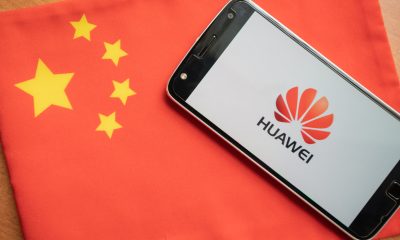YouTube Blacklists Roseanne Barr In Censorship Chokehold

In a recent push against those who dare to question its imposed narrative, YouTube has blacklisted an episode of a podcast hosted by comedian Theo Von featuring Roseanne Barr. Their crime? A satirical discussion on social media censorship and misinformation policies.
Barr, notorious for her sharp wit and provocative comments, engaged in an exchange with Von about the 2020 election results. She painted a hypothetical picture of social media’s truth management, portraying it as a possible threat to freedom of expression. However, the sarcasm in Barr’s remarks didn’t save the podcast from YouTube’s punitive actions.
“YouTube did, and so did all the social media,” Barr said when asked by Von if a mandate against discussing alternative viewpoints existed. “No, you can’t say, you know, that the election was rigged.”
Barr’s comments echoed many Americans’ frustration about social media platforms’ stifling of differing views. While her words may have been wrapped in sarcasm, they brought to the forefront a critical issue – the continuing erosion of free speech in digital arenas.
YouTube justified its decision to blacklist the episode by citing “hate speech.” However, the platform failed to specify which part of the conversation violated its guidelines.
This controversial action raises questions about the role and power of social media platforms in curating content. Critics argue that these platforms, instead of being neutral mediums, shape public discourse by censoring particular views. The irony that a discussion on censorship was censored itself seems lost on YouTube.
Barr’s son, Jake Pentland, defended his mother’s remarks, criticizing those unable to recognize the sarcasm. “We are embarrassed that people are stupid enough not to recognize Roseanne is being sarcastic,” he stated. Similarly, Von defended Barr, sharing the podcast clip on Twitter and describing her as “one of the funniest people I’ve ever met.”
However, it wasn’t only YouTube that had an issue with the podcast episode. Ronald Lauder, President of the World Jewish Congress, called for Apple Music and Spotify to remove the episode, despite Von and Barr’s insistence that the comments were sarcastic.
The controversy surrounding Barr’s comments seems to be less about the actual words she spoke and more about the growing debate over censorship and free speech on social media platforms. The core question remains over who decides what’s acceptable and not in the digital public square.
Barr, who had her show “Roseanne” canceled by ABC in 2018 over a controversial tweet, has been vocal about the rise of “cancel culture.” Earlier this year, she expressed her views to Tucker Carlson on Fox, describing cancel culture as “fascist.” Her recent encounter with YouTube’s censorship hammer could be viewed as further validation of her views.
As we approach the 2024 election, scrutinizing social media censorship becomes increasingly crucial. We must continue to question whether these platforms, while “protecting us from misinformation,” also limit our right to free speech.
























